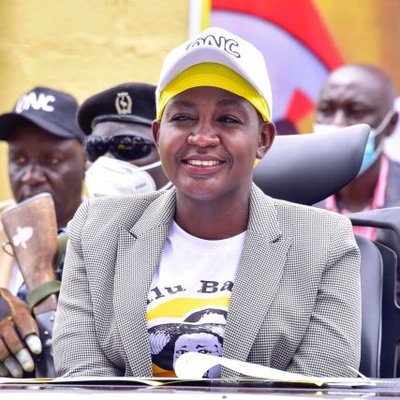By Hajjat Hadijah Namyalo Uzeiye
Kampala: The President of Uganda H.E. Yoweri Kaguta Museveni thought of how to fully eradicate poverty and initiated the Parish Development Model which was the main strategy in the NRM manifesto. He sought how to lift the country’s annual GDP growth rate to at least 7% by 2040 – up from 5.1% projected for 2022.
It’s a bottom-up approach to budgeting, aimed at moving national development planning to the grassroots. Article 176 of Uganda’s constitution provides for decentralization “to ensure people’s participation and democratic control in decision making”. Uganda’s Local Government Act recognizes two types of administrative units at the sub-county level: parishes and villages. Uganda has a total of 10,694 parishes, each with a population size ranging from 450 to 30,000 people.
Under the parish development model, the government has recently set up structures and frameworks for planning, budgeting, and delivery of public services. People at the parish level are to decide development priorities under the policies formulated at the national level.
The assumption is that by getting citizens at the lowest administrative levels to identify and assign resources for their own social needs, development can tilt in favour of the poor. The overall aim, according to the plan, is to deepen the decentralization process, improve household incomes, and increase accountability at local levels.
The objective of the Parish development model.
The Parish Development Model (PDM) is a multi-Sectoral strategy to create socio-economic transformation by transforming, into the money economy, the 39% of Ugandan households that are stuck in the subsistence economy, using the parish/ ward as the epi-centre for development.
Substance farming had become a common problem for Ugandan’s development because everyone was only planning for what to eat and survive but PDM allows each and everyone to plan for a better tomorrow.
This was aligned with the Goal of the NDP-III, the ultimate target is inclusive, sustainable, balanced, and equitable socio-economic transformation
PDM has seven pillars:
1. Increase production and productivity throughout the entire value chain, from production to post-harvest handling, value addition, transportation, storage, and marketing.
2. Provide the necessary social and economic infrastructure to support production and livelihoods.
3. Increase participation of households in the financial sector.
4. Provide accessible and quality social services at the community level.
5. Increase awareness, mobilization, organization, and attitude change among the population to embrace progressive social norms and values and take responsibility to improve their livelihood and incomes.
6. Maintain a community information system that will provide administrative and economic data at the Parish level and enable the local authorities to use the data for planning and development.
7. Deepen decentralization by strengthening governance and administration of the localities and building a culture of transparency and accountability.
Each of these pillars explains a process and if well implemented then our country will be lifted to the middle class status.
The Government of Uganda is funding Parishes through SACCOS created by the parish executive committee which comprises 11 members headed by the LC 2.
Each parish is entitled to Shs 100m and at least each beneficiary is also entitled to receive 1m shillings from any bank of his or her choice. This money is a revolving fund and whoever receives has to know that he or she has to return it after some time but before returning it make sure that you have benefited from it.
The Shs 100m Government is giving to each parish is also per financial year. So if you miss out this year you will benefit next year.
Public outcry;
Above good implementation ideas, many people have gotten discouraged by the process.
The pillars are not well put into action. The mindset is funded with billions of money but whoever is entitled to carry out this activity has messed it up. People still don’t understand the content of PDM.
Some people have been cheated because of the too many procedures and guidelines adopted along the way of implementation. Some people received less than 500k and this has not helped the government in living to its target. And before receiving the money people go through a lot and later lose interest. We have witnessed those who sleep on the streets waiting for the banks to give them money. Those in banks are too reluctant and this should also be given proper attention.
But who is to blame? And what should be done?
Dear Bazukulu let’s all support our JAJJA’s dream of making PDM a successful strategy. Uganda is our country a better Uganda is what we all desire.
![]()




























